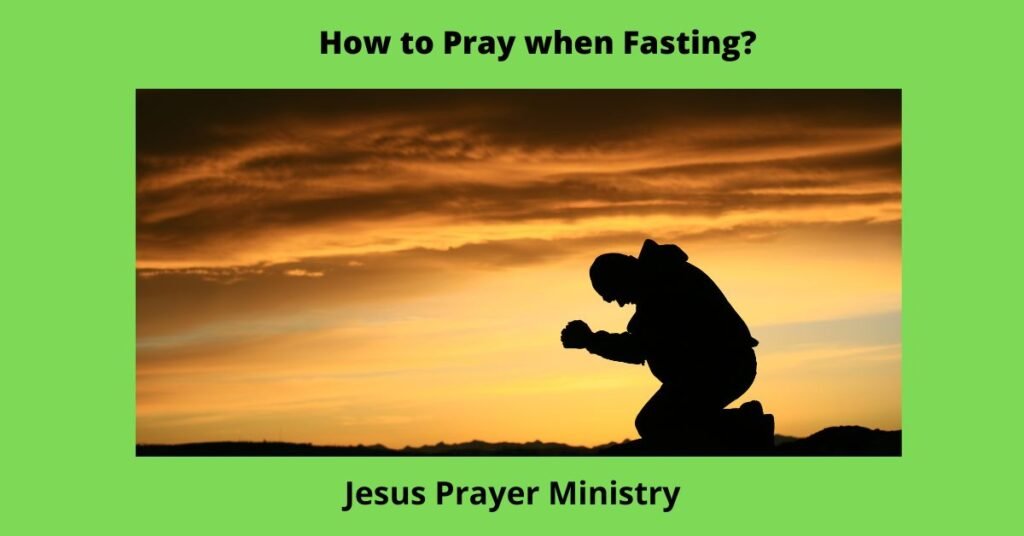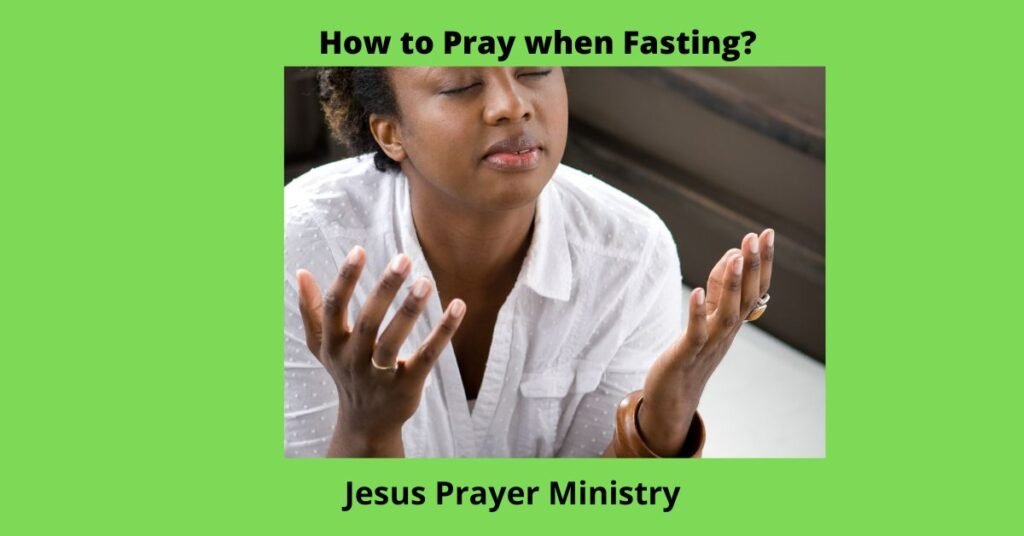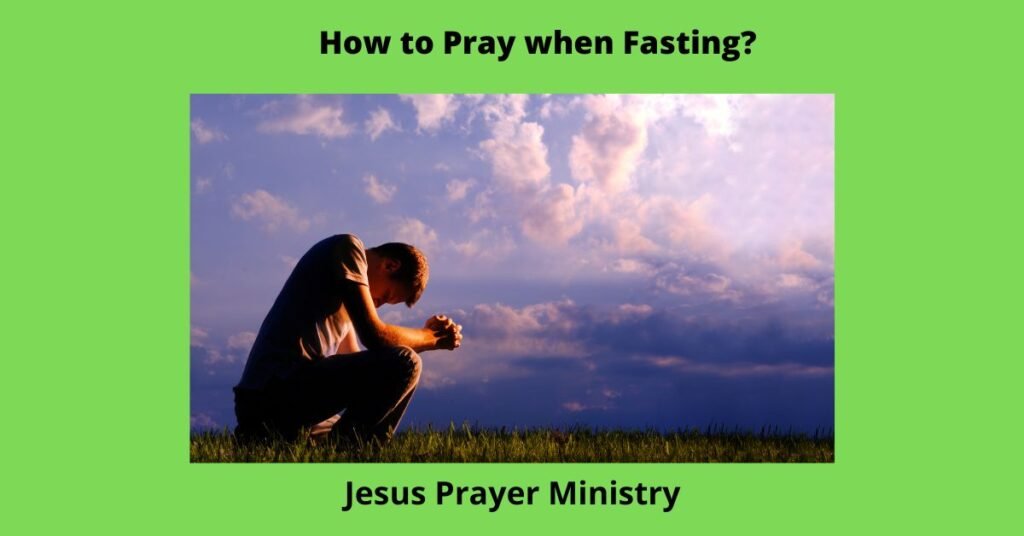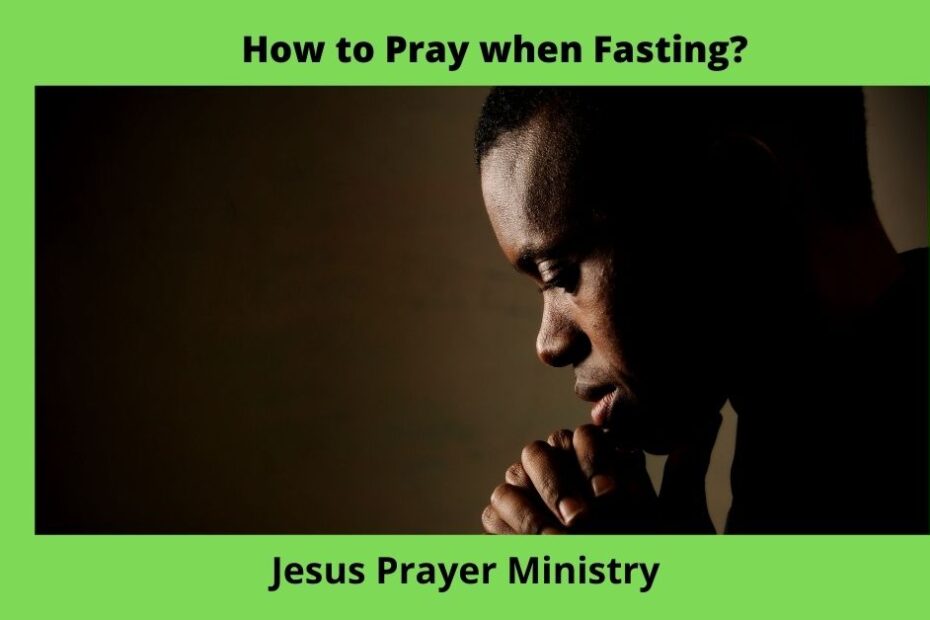Fasting and prayer are two powerful spiritual weapons that God has given us to use in our fight against the devil. When these two weapons are combined, they can be extremely effective in defeating the enemy. In this blog post, we will discuss how to pray when fasting. We will also provide some tips on how to make your fasting and prayer time more effective.
How to Pray when Fasting?
When you are fasting, it is important to be mindful of how you are spending your time. Remember that fasting is not just about giving up food or drink; it is also about drawing closer to God. One way to do this is to set aside some time each day for prayer. You may want to start by praying before you break your fast each day, thanking God for His provision. You can also use your fasting as an opportunity to pray for specific needs or requests. Set aside sometime each day to pray for those who are suffering, or for guidance and wisdom in your own life. As you spend time in prayer, you will find that your fast becomes a deeper spiritual experience. How to Pray when Fasting?
When you are fasting, your body is going without food or water for a set period of time. This can be a difficult experience, both physically and spiritually. However, prayer can help to ease the fasting process and deepen your connection with God. Here are some tips for how to pray when fasting:
1) Set aside regular times for prayer. This will help to keep you focused and prevent you from getting distracted by hunger or thirst.
2) Be specific in your prayers. Ask God for strength and guidance during your fast.
3) Read scripture. Use this time to reflect on God’s word and allow it to speak to you in a new way.
4) Be patient. Fasting can be challenging, but remember that God is with you every step of the way. Trust that He will see you through this experience.

What is the Spiritual Discipline of Prayer?
Prayer is one of the most ancient and fundamental spiritual disciplines. It is a conversation with God in which we express our thoughts and feelings, ask for guidance and wisdom, and give thanks for His blessings. Prayer can take many different forms, from a simple conversation to an extended period of silence and reflection.
No matter what form it takes, prayer is an act of humility in which we acknowledge our dependence on God. It is also an act of trust, as we believe that He hears us and will answer us in His own time and in His own way. As we discipline ourselves to pray regularly, we open our hearts to God and grow closer to Him. As a result, prayer is a powerful tool that can transform our lives.
What is the Spiritual Discipline of Fasting?
The Spiritual Discipline of Fasting is an intentional act of self-denial for the purpose of drawing near to God. It can take many forms, such as skipping a meal, refraining from watching television, or giving up social media for a set period of time. The key is that fasting is done with the intention of setting aside distractions and focusing on God.
When we fast, we are reminded of our dependence on Him and our need for His grace and power in our lives. Additionally, fasting helps us to develop self-control and discipline. As we learn to deny ourselves in small things, we become better equipped to follow Christ in all areas of our lives. Ultimately, the Spiritual Discipline of Fasting is about learning to put God first in all things. As we do so, we will find His strength and peace in the midst of life’s challenges.

Are there Physical safeguards to follow when You Fast?
Though many people see fasting as a means of spiritual cleansing, it is important to remember that it is also a physical process. As such, there are certain safeguards that should be followed in order to ensure a safe and healthy fast. For example, it is important to drink plenty of fluids, as this will help to prevent dehydration.
Fruit juices and water are good choices, as they will provide essential nutrients and help to keep energy levels up. It is also important to eat small meals prior to fasting, as this will help to minimize the risk of low blood sugar. Finally, it is advisable to avoid strenuous activity during a fast, as this can lead to dizziness or fainting.
While there are many spiritual benefits to fasting, it’s important to be aware of the physical risks as well. Fasting can cause dehydration and electrolyte imbalances, so it’s important to drink plenty of fluids. (Fruit juices, herbal teas, and water are all good choices.) It’s also important to avoid becoming overheated, as this can lead to heat stroke.
(Wear loose, comfortable clothing and limit your time in direct sunlight.) Finally, fasts should always be broken slowly, with small amounts of easily-digested foods. (Rice, boiled vegetables, and soup are all good options.) By following these simple guidelines, you can safeguard your health while reaping the benefits of fasting.
Can You fast Too Much?
There are many different types of fasting, ranging from not eating for 12 hours overnight to only eating once per day. Some people also choose to fast for longer periods of time, such as 24 hours or even multiple days. Fasting has been shown to have several health benefits, including weight loss, improved blood sugar control, and reduced inflammation. However, there is such a thing as fasting too much.
When fasting for long periods of time, the body can start to break down muscle for energy, which can lead to fatigue and weakness. In addition, extended fasting can cause dehydration and electrolyte imbalances. As a result, it’s important to consult with a doctor before undertaking any type of fasting plan.

What is the Shortest fast in The Bible?
Fasts are a common religious practice, typically involving a period of abstinence from food and drink. Fasts appear in many different religions, with each tradition typically dictating the specific rules and duration of the fast. For example, Muslims often fast during the month of Ramadan, while Jews may fast on Yom Kippur. The Bible also mentions fasting on several occasions.
In fact, there are a number of different fasting periods mentioned in Scripture, ranging from one day to 40 days. However, the shortest fast mentioned in the Bible is actually just a few hours long. In Esther 4:16, the book of Esther records that Esther “fasted for three days, night or day.” Thus, according to the Bible, the shortest fasting period is three days long.
However, it is worth noting that this particular fast was likely not continuous, as Esther only mentions fasting “night or day.” It is possible that she only abstained from food during the daytime hours, meaning that her total fast may have only lasted for around 36 hours. Regardless, this biblical passage provides insight into the lengths of time that people in ancient times would typically fast for.
What is the Longest fast in the Bible?
The Bible records several individuals who undertook extended fasts, some lasting for 40 days or more. The longest recorded fast was that of Elijah, who went without food for a period of 3 years, 6 months, and 9 days (1 Kings 19:4-8). While this may seem like an extreme example, there are actually several benefits to fasting for long periods of time. For one thing, it can help to improve focus and mental clarity.
When the body is not preoccupied with digesting food, it can instead direct its energy towards other tasks. In addition, extended fasting can also lead to physical detoxification as the body breaks down stored toxins for energy. Finally, long fasts can also promote spiritual growth as they provide opportunities for extended prayer and meditation. While not everyone is called to undertake such a lengthy fast, the example of Elijah shows that it is possible to sustain oneself without food for prolonged periods of time.
People who prayed and Fasted in the Bible?
7 People who Prayed and Fasted in the Bible are;
- Elijah (17 days)
- Moses (40 days)
- Jesus (40 days)
- The Disciples (Acts 13:14)
- Paul (Acts 27:33)
- Anna the Prophetess (Luke
- The Church in Antioch (Acts 14:23)
As you can see, there are many different examples of people praying and fasting in the Bible. Each of these individuals likely had their own reasons for undertaking such a practice, but they all demonstrate the power that prayer and fasting can have. Whether you are called to fast for a short period of time or an extended period of time, know that God will honor your faithfulness and use it for His glory.
What Biblical Results came from Praying and Fasting in the Bible?
In the Bible, there are many examples of people praying and fasting for particular reasons or outcomes.
In some cases, such as when King Jehoshaphat was facing a large invading army, the result was that God intervened and saved the day (2 Chronicles 20:1-30).
In other instances, like when Esther was seeking God’s favor to turn the king’s heart concerning a plot to kill all the Jews, the result was that she found favor in his eyes and was able to save her people (Esther 4:16).
And still in other instances, such as when Jesus was preparing for His ministry, the result was that He was filled with the Holy Spirit (Luke 4:1-13).
So what we see from these examples is that when we pray and fast, God is always faithful to answer in some way. We may not always get the outcome we’re hoping for, but we can be confident that God hears our prayers and will respond according to His will and purposes.
Final Thoughts – How to Pray when Fasting?
We should always approach God
Humbly
Respectfully
Thankfully
Fasting helps focus your mind and body on spiritual Things.
There is a great book if you want to study more called
Celebration of Discipline – By Richard Foster – Great Read
God Bless Greg








